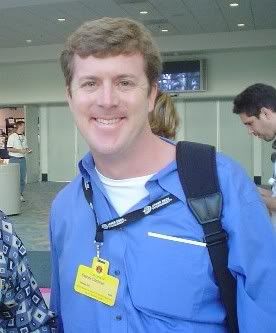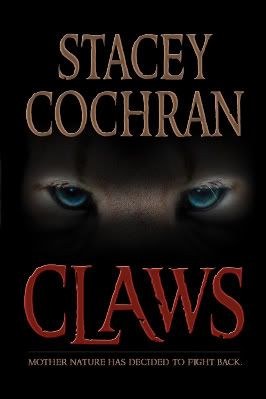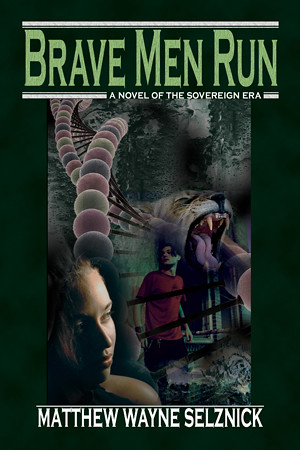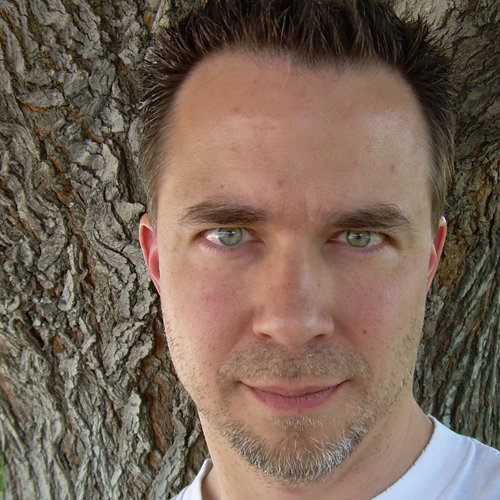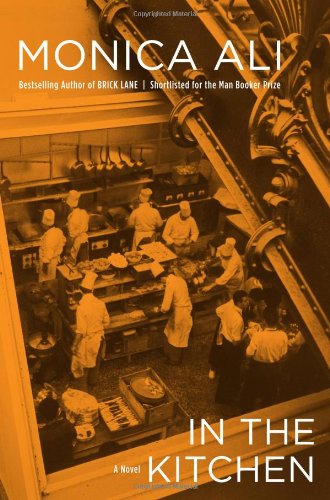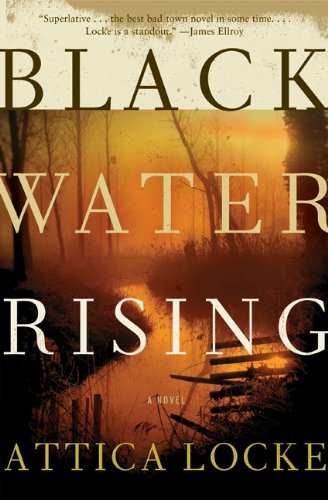
Elisa Lorello currently lives in the Raleigh, NC area and teaches academic writing at NC State University. She is currently wrapping up a blog tour for her first novel, FAKING IT, released in November 2008. In addition to reading, writing, and teaching, her passions include hanging out in coffeeshops, cats, and chocolate chip cookie dough pop tarts.
What is your earliest memory of writing?
Before I begin, I want to thank you for hosting me today, Rob. You clearly are passionate about writing and other writers, and I so appreciate that.
My earliest memory of writing (in terms of more than the physical act of putting letters together) was in first grade, when my teacher gave me a picture card of a boy standing on a chair to reach a cookie jar, and asked me to make up a story about it. I wrote that the boy wanted a cookie, but his mother was busy working while his father was giving a guitar lesson (I even remember spelling it “gitar”), and his brothers and sisters were all out playing, so the boy had to figure out a way to get it himself. I suppose you can read into all sorts of psychological interpretations (needing to cope with fending for myself, for example). But what I find so fascinating was that even back then I used what I knew. At that time, it was rare to have a mom that worked, and my dad had been out of work and supplemented by teaching guitar. But it was just sort of normal to me.
How did it feel to see your book in print?
It was so exciting to see FAKING IT in print! I held it, opened and closed it, flipped to any random page and started reading, turned it over a few times, even smelled it. It was even more exciting the first time I saw it on the shelf at Quail Ridge Books, an independent bookstore in Raleigh, NC. FAKING IT was just two books down from To Kill a Mockingbird. Wow.
When did you decide to be a writer?
I don’t think that I ever decided to be a writer—I always knew I was a writer. I’ve been writing since that cookie jar story, be it in a diary or bad poetry or secret stories that I’ve never shown anyone to this day or personal essays. It was the one constant in my life, the one friend I could count on during the most turbulent times in my life. I’d taken creative writing classes and had gotten published in high school literary magazines, but many things got in the way of making writing a career; namely, fears of not being able to make a living or not knowing how to get professionally published, among other life circumstances/events. I don’t regret the path I took, however.
I got my bachelor’s degree at UMass-Dartmouth in my late 20s, and it was during my senior year that I started to do a lot of creative nonfiction and autobiographical writing (the autobiographical stuff was for my psychology courses—I love how a few composition teachers insist that students will never do personal or autobiographical writing in college; they should’ve met my psych professors!). One professor recommended I check out the Masters in Professional Writing program at UMD, and the rest is history. For the first time, I really learned revision as a craft, and I learned rhetorical theory. I know very little about literary theory, though. I tend to approach fiction writing in terms of audience and purpose and style more than plot and conflict and theme, etc.
The idea for FAKING IT had come to me in 1999, but I didn’t sit down to write it until 2004 because I didn’t believe I was a fiction writer. Any fiction I’d ever written was horrible! But this idea wouldn’t go away, so when I finally sat down to write it, I did so with permission for it to be horrid, figuring no one would ever know. Lo and behold… it wasn’t horrid, and now I have fully embraced myself as a fiction writer!
Do you get writer's block? How do you combat it?
All the time! I hate it, too. My writer’s block is based on the fear that anything I write will be crap. I can be perfectionistic in certain aspects, and that’s one of ‘em.
Sometimes I just avoid the physical act of writing and mentally compose for awhile, until it feels familiar enough to write down. But if too much time passes, then I have to do something. So I play psychological games. I tell myself that it’s just a draft, no one has to read it at this stage, revision always makes it better, it’s ok to write a crappy first draft, etc. I actually write or type it at the top of the page. It’s the same thing I tell my students, actually, because they have the same fears—they have it worse, actually, because they do have to show their work to others during that crappy first draft stage! Some have told me that writing such statements really helped them get past their fears. The funniest is when they forget to delete it from their final draft, and the introductory sentence says, This doesn’t have to be any good…
What's your writing routine? Do you write longhand, typewriter or computer?
As much as I tell myself that I should be disciplined and have a routine, I really don’t, although sometimes I do get into a pattern depending on what I’m working on and what time of year it is. Teaching takes up so much mental and physical energy, and when I’ve got 60 students and drafts are due… let’s just say it’s difficult to find the motivation, time, or energy. And yet, I’m always writing something, even if it’s just an entry in my diary at the end of the day.
In the past, during the summer I settled into a very specific routine, but this summer has been completely different because I’m promoting FAKING IT every day. I didn’t anticipate how time-consuming that would be. Mind you, I’m not complaining, but it’s a lot of work. I haven’t established a writing routine this summer yet. By the time I do, it’ll be time to go back to school, most likely.
Typically I type on the computer mainly because I’ve gotten to be a fast (albeit sloppy) typist, and when the writing’s going well, I need to be fast. But there are times when I prefer to slow down, and that’s where longhand comes in. I usually go to a coffeeshop, sit near a window, and work on a scene in a notebook. I’ll also write longhand when an idea comes to me and I just want to sketch it out, or if it’s right before bed or first thing in the morning or someplace where my laptop isn’t.
Tell us about FAKING IT and how you decided to self publish at first.
Faking It is a romantic comedy. Andi, a 30-something writing professor, meets Devin, a handsome, charming escort who catches her attention. She proposes an unusual arrangement: lessons in writing in exchange for lessons in how to be a better lover. When the two break the rules of their contract that forbids each other from seeing each other socially and become friends, problems ensue. I always pitch the novel as When Harry Met Sally meets Sex and the City. It’s witty and fun, but also poignant at times. The perfect summer read!
I had queried about sixty agents, and even though I received and responded to several requests for manuscripts, I wound up with all rejections, albeit encouraging ones. Looking back, I made a lot of mistakes with the querying process. For one thing, I didn’t do enough research to find agents that were the best match for me. For another, I used a form letter rather than write to specific agents with a specific purpose. Writing query letters is just like writing a cover letter for a job. It’s not about what that agent can do for you; it’s about what you can bring to that agent.
I listened to the feedback that these agents had, however, and made the necessary revisions. I always believed that the novel was worthy of publication, and I knew I had access to an audience in terms of networking, so after doing some research and weighing the pros and cons, I decided to self-publish. I was also very fortunate to catch the wave of social networking (such as Facebook and Twitter), which has been instrumental in FAKING IT’s success.
What was your inspiration for writing it?
During my senior year as an undergrad, I took an elective called Writing about Popular Culture—I loved this course, and it really got my creative juices going. At that time, Sex and the City had just come out and was this sensation. I had a lot of issues with it, though. I was struck by its boldness, yet uncomfortable with its content—I was this Roman Catholic girl with five overprotective brothers and a mother who never let me watch soap operas when I was a kid, and they’re talking about WHAT??? Suddenly this “what-if” whispered in my ear: what if a woman is so inhibited that she needs someone to teach her to be more like those women on Sex and the City? And what if that person is a man, someone who is an expert on such things? What if he’s an escort? And what if they become friends? And so on.
That was the conception of FAKING IT. I knew Andi was going to teach Devin something in return as part of the premise, but I didn’t know what until I was immersed in my graduate studies. I kind of had that same epiphany that Andi had: Hey, I’m good at this. Why not make her a writing teacher as well? Andi was even further along in her career than I was at the time, so that was kind of fun. It turned out to be this really magical, happy accident, though, because the novel in and of itself is wonderfully rhetorical, especially in the way the characters dialogue. I don’t think I could have deliberately conceived that.
What are you working on now?
I’m putting the finishing touches on Ordinary World, the sequel to FAKING IT. I was originally planning to release it at the end of the summer, but I’m going have to postpone that. I’m also co-writing a third novel with a good friend of mine. That’s been a blast. I don’t think I could ever collaborate with anyone other than her. Our collaborative writing process has been very different from my individual process, and that’s been fascinating both as an observer and a participant, especially since it works for us. We’re hoping to finish that novel by the end of this year and start querying agents in January 2010.
Andi and Devin are both very unique and funny characters. If your book was made into a movie, who would you choose for the staring roles and why?
Funny you should mention that. Back when I was insisting that I wasn’t a fiction writer, I had considered writing FAKING IT as a screenplay because the more I thought about it, the more I saw it like a movie in my mind’s eye. But I knew even less about writing a screenplay than I did writing a novel. Incidentally, I co-wrote a first draft screenplay of FAKING IT with my aforementioned writing partner shortly after I finished the first version of the manuscript because she had taken a screenwriting course. Also, she knew the novel better than anyone because she had given me the most feedback. I think back then we intuitively knew we’d collaborate again in the future.
I had originally envisioned Devin to look a little bit like a young Chris Noth (who played Mr. Big in Sex and the City). In 2000 I had met Noth in New York City following his performance in the play The Best Man (he was terrific). His smile was the inspiration for Devin’s smile. Chris Noth has this incredible smile, and when he looks straight at you and flashes it, you’re just completely consumed. At least I was! The only other actor I know of who can pull off that same electric smile is Hugh Jackman. I think he’d make a fabulous Devin in that regard. Don’t know if he could pull off a Long Island accent, though. There’s also my friend Marc, who made me promise that if Hugh isn’t available, then the role goes to him! I have no idea who I’d want to see cast as Andi, though. Maybe a newcomer. Someone who isn’t rail thin, either. (If Hugh Jackman gets cast, then I'll certainly audition...)
My older brother thought that FAKING IT felt a lot like a stage play to him, which I found really interesting. I was watching so much Aaron Sorkin and The West Wing when I wrote the first draft, so I’m sure that has something to do with it.
In the book, you describe New York very well. How much research did you do?
I grew up on Long Island, so anytime I wanted to go into Manhattan all I had to do was hop on the Long Island Rail Road. It wasn’t until I moved away that I realized how much I took that for granted, especially after the twin towers came down. I know how to get around the city in terms of it being a grid, and I had a feel for it in terms of character, but I didn’t really know it that well in terms of actual places to go. My good friend Elisa (yes, same name!) helped me out with that. I’d always wanted to go to Junior’s in Brooklyn, too, and decided it had to be a special place for Andi. I finally went in 2007. Let’s just say I was right on the money with Andi’s orgasmic reactions to one bite of Junior’s cheesecake.
For the scene when Andi and Devin go to the movies at the Shore on Long Island, I’d actually spent a lot of time hanging out in Huntington village when I was growing up, and always went to the Shore, so it was fun to write that. I googled it to get some of its history, though. And Francesco’s pizzeria in South Huntington is owned by the nicest guy in the world—I haven’t had a chance to get back there and tell him that Francesco’s has a cameo in the book.
Favorite writers?
Aaron Sorkin, Nora Ephron, Richard Russo, David Sedaris, and Bill Bryson are the ones I keep going back to, each one for different reasons. I just met David Sedaris this past week, so that was a thrill. Marion Keyes and Jennifer Weiner are great chick lit writers. And I loved the writing on the show Gilmore Girls, with the exception of the final season. I’m also really into David E. Kelley’s Boston Legal right now, too. There’s a good chance I may get into screenplay or teleplay writing at some point since so many of my influences write in that medium, and because I love writing dialogue. As for my favorite rhetoric and composition writers, Peter Elbow, Lad Tobin, and the late Donald Murray top the list. And my friend Susan Miller-Cochran, too!
What advice do you have for aspiring writers?
Several things:
- Get aggressive with your career. Basically that means to not wait for anyone to knock on your door and do it for you. Even if you get the agent and the publishing deal, it’s still up to you to promote yourself and your work. But you also have to be respectful of the business. Don’t make a pest of yourself. Follow the submission guidelines when it comes to agents, and don’t email them every five seconds asking why it’s taking so long for them to read your query or, if you’re lucky, your manuscript.
- Persevere. A manuscript doesn’t get done overnight. Neither does publishing, whether you go the independent route or the traditional one. You have to do a lot of research, follow up on leads, and move on when rejections happen, learning something from each one. Just because one agent or publisher says it’s not right for them doesn’t mean there’s not another one who thinks otherwise. It also takes time to acquire a following of readers. Be patient.
- Take yourself seriously and treat yourself like a professional. Like you’re getting paid the six-figure advance, even. Edit your manuscript within an inch of its life, or hire one to do it. If you self-publish, hire a graphic designer to design your book cover. Have integrity about your work. There’s a lot of poor quality work out there. You don’t want yours to be one of ‘em.
- READ. Read read read read read.
- Take advantage of social networking sites like Facebook and Twitter. They’re playing the biggest role in my success right now.
- Write the book you would want to read. If you try too hard to write something formulaic or write what you think others want to read, your audience will see right through that. And yet, at some point, you do need to get reader feedback and criticism and take what they say into consideration.
FAKING IT is now available at Lulu.com; Amazon Kindle Store; Quail Ridge Books and Music in Raleigh, NC; Baker Books in N. Dartmouth, MA; and the Claire T. Carney Library at UMass-Dartmouth. For more information, please go to www.elisalorello.com, Elisa’s blog “I’ll Have What She’s Having”, Faking It Fans on Facebook, or follow Elisa on Twitter @elisalorello. You can also catch Elisa on Stacey Cochran’s The Artist’s Craft.
"The secret of life is honesty and fair dealing. If you can fake that, you've got it made." ~ Groucho Marx

